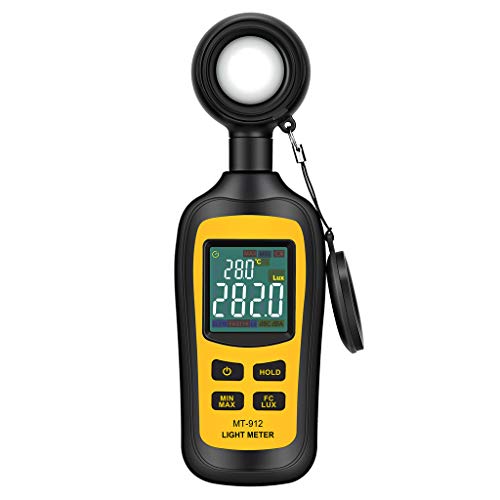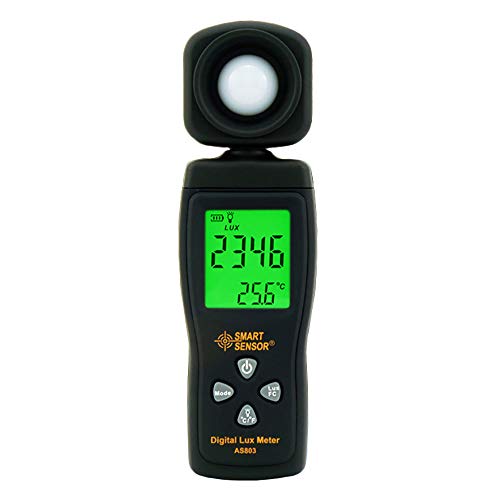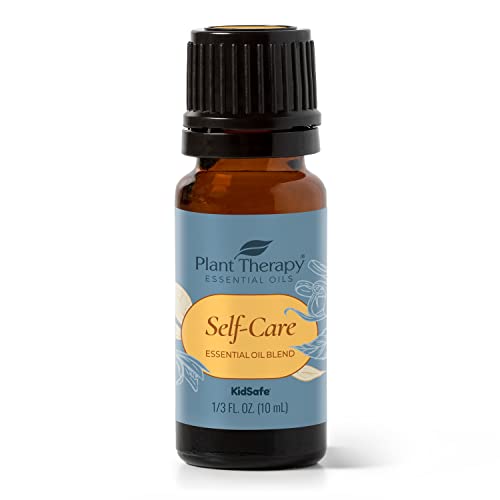7greeneyes
MedicalNLovingIt!
- Joined
- Jul 25, 2008
- Messages
- 8,071
- Reaction score
- 789
http://www.wbng.com/news/local/Is-NY-next-to-join-the-medical-marijuana-movement-263881441.html
Albany, NY (WBNG Binghamton) The New York State Assembly approved a bill to legalize the administration of medical marijuana.
The State Senate will vote on the legislation Friday morning.
The Assembly passed the Compassionate Care Bill just before 3 a.m. Friday. The legislation will establish a medical marijuana program for New York State.
It includes provisions to ensure medical marijuana is reserved only for patients with serious conditions and is dispensed and administered in a manner that protects public health and safety.
"This legislation strikes the right balance," Governor Cuomo said. "Medical marijuana has the capacity to do a lot of good for a lot of people who are in pain and suffering, and are in desperate need of a treatment that will provide some relief. At the same time, medical marijuana is a difficult issue because there are risks to public health and safety that have to be averted. I believe this bill is the right balance, and I commend the members of the Legislature who worked so hard on this measure."
New York State Assemblywoman Donna Lupardo (D) is a co-sponsor of the bill.
"The assembly has passed this bill many many years in a row and now it looks like we're going to have the beginnings of the medical marijuana program in New York State," said Lupardo. "Not everything that those of us in assembly wanted but its certainly a huge step forward for people who wanted to have this option for treatment."
If passed by Senate and signed by the Governor, New York would become the 23rd state to legalize medical marijuana.
Find details of the bill below:
Medical Marijuana Reserved for Patients with Serious Conditions:
To ensure medical marijuana is available only to patients with serious conditions who can most benefit from the treatment, the legislation establishes a certification and registry process for physicians to administer the drug.
To be prescribed medical marijuana, a patient must receive a certification from a licensed practitioner who must register with the Department of Health and be qualified to treat the serious condition for which the patient is seeking treatment. The serious conditions for which medical marijuana can be prescribed are cancer, HIV/AIDS, ALS (Lou Gehrigs Disease), Parkinsons Disease, multiple sclerosis, damage to the nervous tissue of the spinal cord with objective neurological indication on intractable spasticity, epilepsy, inflammatory bowel disease, neuropathies, Huntingtons Disease, or as added by the commissioner by DOH.
To ensure medical marijuana is in the hands of only individuals in need and their health care provider, Registry Identification Cards will be issued by DOH to certified patients. The card would contain any recommendation or limitation on form or dosage imposed by the practitioner as well as other information. The Department would be able to suspend or revoke the card of a patient who willfully violates any provision of the new law.
Health insurers would not be required to provide coverage for medical marijuana.
Administering Medical Marijuana Safely:
Any form of medical marijuana not approved by the Department of Health is prohibited, and under no circumstances would smoking be allowed. DOH will issue guidelines regulating the allowed dosage amounts, and patients would not be allowed to possess an amount of medical marijuana in excess of a 30 day supply. Additionally, the patient would be required to keep the medical marijuana in the original packaging in which it was dispensed.
The legislation puts in place a process for patients to obtain, and manufacturers to dispense medical marijuana. Organizations seeking to manufacture or distribute medical marijuana must be registered with DOH and conform to a specific list of requirements. Registration would be valid for two years at a time, renewable, and subject to revocation. Registered organizations would be required to comply with strict security and record keeping requirements. The legislation allows for five registered organizations that can each operate up to four dispensaries statewide.
Registration identifications and registrations for organization would be issued 18 months after the effective date of the bill, unless DOH certifies that the new program could not be implemented in accordance with public health and safety interests.
Registered organizations would be able to dispense medical marijuana to individuals who present a registry identification card. The organization would not be able to dispense an amount greater than a thirty day supply to a patient. The medical marijuana would be dispensed in a sealed and properly labeled package with a safety insert included. All manufacturing and dispensing of medical marijuana by registered organizations would take place in New York and registered organizations would contract with an independent laboratory to test the medical marijuana.
Tough Penalties for Individuals and Physicians Who Abuse Medical
Marijuana Program
The legislation makes it a Class E felony for a practitioner to certify an individual as eligible to facilitate the possession of medical marijuana if he or she knows or reasonably should know the person who is asking for it has no need for it. The legislation also makes it a misdemeanor for recipients of medical marijuana to sell or trade the medical marijuana, or retain beyond what is needed for treatment the marijuana for their own use or the use of others.
Distribution of Tax Revenue from Medical Marijuana
The legislation puts in place a 7 percent excise tax on every sale of medical marijuana by a registered organization to a certified patient or designated caregiver. Proceeds from the excise tax would be allocated as follows: 22.5% to the county in New York state in which the medical marijuana was manufactured; 22.5% to the county in New York state in which the medical marijuana was dispensed; 5% to the State Office of Alcoholism and Substance Abuse Services to be used for additional drug abuse prevention, counseling and treatment services; and 5% to the Division of Criminal Justice Services to support law enforcement measures related to this legislation.
The legislation grants DOH the authority to issue any necessary regulations to implement the state's medical marijuana program, as well as set a price. The Governor would also be allowed to suspend or terminate any provisions of the program based on the recommendations of the Commissioner or Superintendent.
The bill would take effect immediately and sunset in seven years.
(New York) Medical marijuana legislation passed by State Assembly
Albany, NY (WBNG Binghamton) The New York State Assembly approved a bill to legalize the administration of medical marijuana.
The State Senate will vote on the legislation Friday morning.
The Assembly passed the Compassionate Care Bill just before 3 a.m. Friday. The legislation will establish a medical marijuana program for New York State.
It includes provisions to ensure medical marijuana is reserved only for patients with serious conditions and is dispensed and administered in a manner that protects public health and safety.
"This legislation strikes the right balance," Governor Cuomo said. "Medical marijuana has the capacity to do a lot of good for a lot of people who are in pain and suffering, and are in desperate need of a treatment that will provide some relief. At the same time, medical marijuana is a difficult issue because there are risks to public health and safety that have to be averted. I believe this bill is the right balance, and I commend the members of the Legislature who worked so hard on this measure."
New York State Assemblywoman Donna Lupardo (D) is a co-sponsor of the bill.
"The assembly has passed this bill many many years in a row and now it looks like we're going to have the beginnings of the medical marijuana program in New York State," said Lupardo. "Not everything that those of us in assembly wanted but its certainly a huge step forward for people who wanted to have this option for treatment."
If passed by Senate and signed by the Governor, New York would become the 23rd state to legalize medical marijuana.
Find details of the bill below:
Medical Marijuana Reserved for Patients with Serious Conditions:
To ensure medical marijuana is available only to patients with serious conditions who can most benefit from the treatment, the legislation establishes a certification and registry process for physicians to administer the drug.
To be prescribed medical marijuana, a patient must receive a certification from a licensed practitioner who must register with the Department of Health and be qualified to treat the serious condition for which the patient is seeking treatment. The serious conditions for which medical marijuana can be prescribed are cancer, HIV/AIDS, ALS (Lou Gehrigs Disease), Parkinsons Disease, multiple sclerosis, damage to the nervous tissue of the spinal cord with objective neurological indication on intractable spasticity, epilepsy, inflammatory bowel disease, neuropathies, Huntingtons Disease, or as added by the commissioner by DOH.
To ensure medical marijuana is in the hands of only individuals in need and their health care provider, Registry Identification Cards will be issued by DOH to certified patients. The card would contain any recommendation or limitation on form or dosage imposed by the practitioner as well as other information. The Department would be able to suspend or revoke the card of a patient who willfully violates any provision of the new law.
Health insurers would not be required to provide coverage for medical marijuana.
Administering Medical Marijuana Safely:
Any form of medical marijuana not approved by the Department of Health is prohibited, and under no circumstances would smoking be allowed. DOH will issue guidelines regulating the allowed dosage amounts, and patients would not be allowed to possess an amount of medical marijuana in excess of a 30 day supply. Additionally, the patient would be required to keep the medical marijuana in the original packaging in which it was dispensed.
The legislation puts in place a process for patients to obtain, and manufacturers to dispense medical marijuana. Organizations seeking to manufacture or distribute medical marijuana must be registered with DOH and conform to a specific list of requirements. Registration would be valid for two years at a time, renewable, and subject to revocation. Registered organizations would be required to comply with strict security and record keeping requirements. The legislation allows for five registered organizations that can each operate up to four dispensaries statewide.
Registration identifications and registrations for organization would be issued 18 months after the effective date of the bill, unless DOH certifies that the new program could not be implemented in accordance with public health and safety interests.
Registered organizations would be able to dispense medical marijuana to individuals who present a registry identification card. The organization would not be able to dispense an amount greater than a thirty day supply to a patient. The medical marijuana would be dispensed in a sealed and properly labeled package with a safety insert included. All manufacturing and dispensing of medical marijuana by registered organizations would take place in New York and registered organizations would contract with an independent laboratory to test the medical marijuana.
Tough Penalties for Individuals and Physicians Who Abuse Medical
Marijuana Program
The legislation makes it a Class E felony for a practitioner to certify an individual as eligible to facilitate the possession of medical marijuana if he or she knows or reasonably should know the person who is asking for it has no need for it. The legislation also makes it a misdemeanor for recipients of medical marijuana to sell or trade the medical marijuana, or retain beyond what is needed for treatment the marijuana for their own use or the use of others.
Distribution of Tax Revenue from Medical Marijuana
The legislation puts in place a 7 percent excise tax on every sale of medical marijuana by a registered organization to a certified patient or designated caregiver. Proceeds from the excise tax would be allocated as follows: 22.5% to the county in New York state in which the medical marijuana was manufactured; 22.5% to the county in New York state in which the medical marijuana was dispensed; 5% to the State Office of Alcoholism and Substance Abuse Services to be used for additional drug abuse prevention, counseling and treatment services; and 5% to the Division of Criminal Justice Services to support law enforcement measures related to this legislation.
The legislation grants DOH the authority to issue any necessary regulations to implement the state's medical marijuana program, as well as set a price. The Governor would also be allowed to suspend or terminate any provisions of the program based on the recommendations of the Commissioner or Superintendent.
The bill would take effect immediately and sunset in seven years.





























































